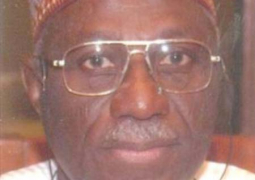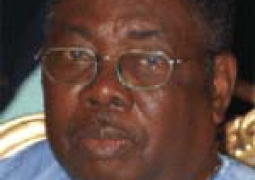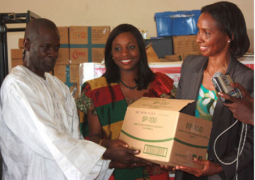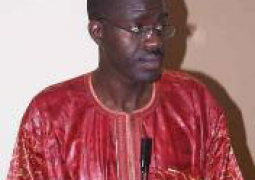Disability, as we all know, does not mean inability, as disabled people in our communities, societies and the country in general need to enjoy the opportunities the rest of us enjoy.
Women, girls and children with disability in particular need special treatment because they are the most vulnerable in our society.
Every day we walk pass women with disability sitting on wheelchairs begging on the street.
What do we do to help these women so they can also contribute their quota to nation-building?
If the rest of us can do it, they can do it also, probably better; all they need is support.
We are not really helping them by giving them alms and the like; we have to show them how to fish so they can fish for themselves.
They are just like each and every one of us; they have dreams, ambitions and hope for a brighter future.
The future is indeed bright for our disabled people in The Gambia as the National Association of Cooperative Credit Unions of The Gambia (NACCUG) and the Gambia Federation of the Disabled (GFD), recently signed a memorandum of understanding to implement a micro credit scheme for women with disability.
The signing ceremony, which took place at the NACCUG headquarters in Kanifing Layout, was designed to make financial services accessible to women with disabilities in small business to improve their livelihood and income level.
Speaking at the signing ceremony, Sainey Camara, rehabilitation technician at the department of social welfare, said the United Nations Convention on the rights of persons with disabilities (UNCRPD) for which The Gambia is a signatory had set up the rights of people with disabilities and obligations of the Government towards citizens with disabilities.
He added that the Government of The Gambia was committed to the duty of fulfilling the realization of the disability policy and the CRPD.
The government would strengthen their collaboration and work with the GFD and all stakeholders towards achieving the aspirations and dictates of the CRPD, for the benefit of all, he said.
Baboucarr Jeng, general manager of NACCUG, said NACCUG is the apex body of credit unions in The Gambia, adding that 69 credit unions with a total membership of 59,000 across the length and breadth of the country came together to form NACCUG.
Their objective is to improve the lives of people but through people helping people by giving grants to people, he said.
He said they encourage people to save and then take loans to sort out their daily lives and also engage in some kinds of business.
He added that they want to help those with disabilities to have a source of income to improve their lives.
This was the first time as an apex body they were signing such a MoU with people with disability, he disclosed.
He added that it was important in two aspects: they would learn as a credit union movement to interact with people with disability and would also improve themselves and their work.
As part of their responsibility they would open windows of opportunity to people with disability, particularly those in The Gambia, Mr Jeng said.
Ebrima Dibassy, executive director of GFD, said they had partnered with NACCUG, Sight Savers and Gambia Federation of the Disabled to make microfinance accessible to persons with disability.
He said there are lots of initiatives in microfinance but people with disability find it challenging to access them due to certain issues.
This partnership was meant to make microfinance services accessible to people with disability, especially disabled women, Mr Dibassy said.
He also said they started the negotiation a while ago and it seems NACCUG as an umbrella institution in the country had opened its doors and encouraged them to enter the partnership.
“Disability does not mean inability. I challenge our members to showcase that disability does not mean inability,” said Dibassy.
He added that they would be able to have access to funds and are expected to live up to expectations since it was not a gift but a loan and it would help their members to live a meaningful life and one with dignity.
He added that instead of women with disability become tax users, they would become tax contributors in building the nation.
He appealed to other microfinance institutions to come on board and render support to them.





